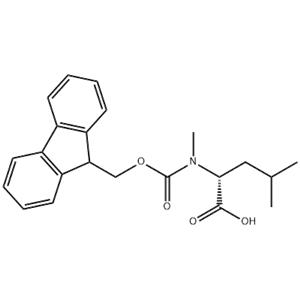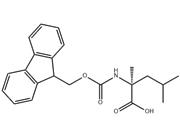Application: |
Peptide Synthesis: Fmoc-N-Me-D-Leu-OH serves as a building block in peptide synthesis, both in solid-phase peptide synthesis (SPPS) and solution-phase peptide synthesis. It can be incorporated into peptide chains as a protected amino acid, allowing for the creation of peptides with specific sequences. Peptides synthesized using Fmoc-N-Me-D-Leu-OH may have applications in drug development, biochemical research, and therapeutic interventions. Drug Development: Peptides containing modified amino acids, such as D-leucine, synthesized using Fmoc-N-Me-D-Leu-OH, may exhibit unique pharmacological properties compared to their natural counterparts. They may have enhanced stability, altered receptor selectivity, or improved bioavailability. Therefore, they are of interest in drug development efforts targeting various diseases such as cancer, inflammation, and neurological disorders. Biological Research: Fmoc-N-Me-D-Leu-OH can be used in biochemical and biological studies to investigate protein structure and function. Incorporating modified amino acids into peptides or proteins can help elucidate their roles in biological processes, protein-protein interactions, and signal transduction pathways. Additionally, peptides containing modified amino acids may serve as probes for studying cellular signaling and disease mechanisms. |


 China
China

